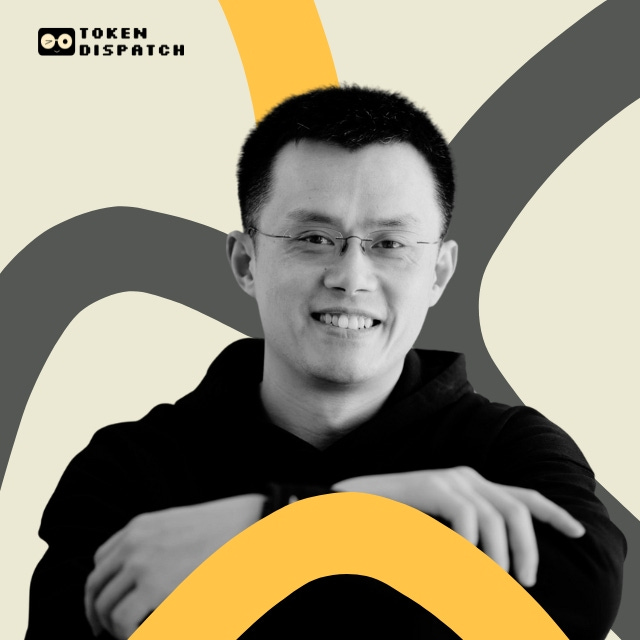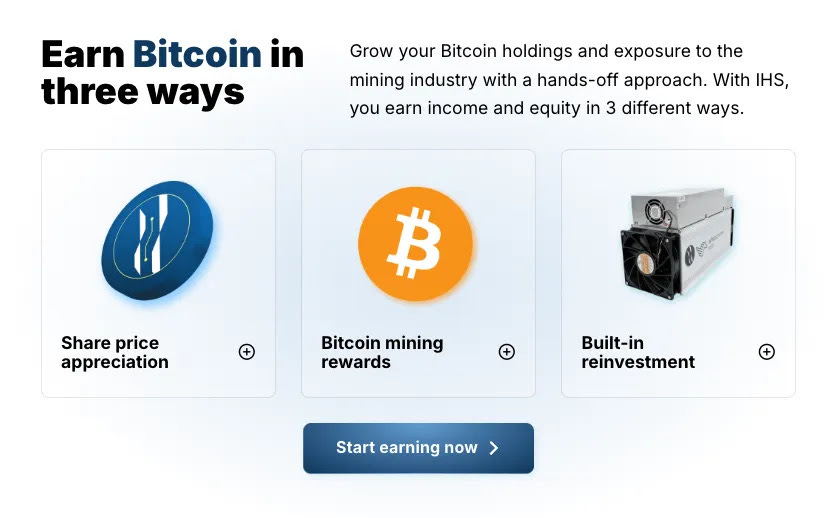TGIF Dispatchers.
On September 27, 2024, a familiar figure walked out of a California halfway house, having completed his four-month prison sentence for violating US anti-money laundering laws.
The man who once controlled the world's largest cryptocurrency exchange, oversaw billions in daily trading volume, and amassed a fortune estimated at $66 billion, quietly tweeted "gm" to his millions of followers.
Changpeng Zhao – known universally as "CZ" – had returned to the world beyond bars.
In the crypto ecosystem's brief history, few journeys rival CZ's for sheer drama and contrast: from McDonald's clerk to crypto titan, from regulatory disruptor to convicted felon, from exchange kingpin to prison inmate.
Six months after his release, CZ has pivoted to education, advisory roles, and strategic investments while maintaining his status as one of crypto's most enigmatic figures – a man whose life story reads like a case study in both the possibilities and pitfalls of the digital asset revolution.
Buy Once, Earn Daily Bitcoin Forever
Infinity Hash brings the best aspects of cloud and colocation mining into a transparent and reliable system that provides long-term cash flow.
Chinese Exile to Canadian Immigrant
The roots of CZ's complicated relationship with authority trace back to his earliest days.
Born in 1977 in Lianyungang, Jiangsu province, China, CZ grew up in a household marked by political persecution. His father, a university professor, was branded a "pro-bourgeois intellect" shortly after CZ's birth and temporarily exiled to a rural area.
This early brush with state power shaped the family's trajectory. In 1984, CZ's father left China for Vancouver, Canada, to pursue a PhD at the University of British Columbia. Five years later, following the Tiananmen Square crackdowns, 12-year-old CZ and his mother joined him, leaving China behind.
In Canada, the young immigrant took on multiple jobs to support his family – working at McDonald's, serving as a volleyball referee, and taking overnight shifts at a Chevron gas station.
CZ's academic aptitude led him to McGill University in Montreal, where he earned a computer science degree – a foundation that would prove crucial for his future in cryptocurrency.
Get 17% discount on our annual plans and access our weekly premium features (Game On, News Rollups, HashedIn, Wormhole, Rabbit hole and Mempool) and subscribers only posts. Also, show us some love on Twitter and Telegram.
Building Technical Expertise
CZ's career began with coding, not crypto.
After university, he secured an internship at the Tokyo Stock Exchange, developing software for matching trade orders – his first exposure to the mechanics of financial markets. He later spent four years at Bloomberg Tradebook working on futures trading software, building technical expertise that would prove invaluable in his future exchange.
In 2005, CZ moved to Shanghai and launched Fusion Systems, a firm specialising in high-frequency trading platforms for brokers. While successful, this venture merely foreshadowed his crypto transformation.
CZ's crypto origin story is one for the books. In 2013, during a casual poker game, he learned about Bitcoin from a friend who worked at Sequoia Capital. Most people would've nodded politely and forgotten about it. Not CZ.
He went ALL IN.
We're talking sell-your-Shanghai-apartment-and-invest-everything-in-Bitcoin all in.
His friends and family thought he'd lost his mind (spoiler: he hadn't).
Two months later, Bitcoin crashed by 70%, wiping out more than $700,000 of his investment.
CZ was undeterred. He joined Blockchain.info (now Blockchain.com) as part of the development team and later served as Chief Technology Officer at OKCoin, one of China's largest exchanges at the time.
Binance: The 180-Day Phenomenon
By mid-2017, CZ had identified a significant opportunity in the cryptocurrency exchange market. Existing platforms were plagued by poor user experiences, inadequate liquidity, and frequent outages during peak trading periods.
On July 14, 2017, CZ launched Binance, raising $15 million through an Initial Coin Offering (ICO) of Binance Coin (BNB). The name merged "binary" and "finance," signifying the fusion of traditional financial services with binary computer code.
What followed was one of the most remarkable growth stories in business history.
Within just 180 days, Binance became the world's largest cryptocurrency exchange by trading volume.
CZ's approach combined technical excellence with bold operational decisions. When China banned cryptocurrency exchanges in September 2017, just two months after launch, CZ quickly relocated Binance's operations to Japan, later to Malta and continued expanding.
The company adopted a "no headquarters" model, with operations distributed globally – a structure that provided flexibility but would later attract regulatory scrutiny.
Read: Crypto Is Illegal in China. Binance Does $90 Billion of Business There Anyway. - WSJ
Binance's growth continued through the crypto winter of 2018-2019. As markets recovered, the exchange introduced new products at a dizzying pace: Binance Launchpad for token offerings, Binance Smart Chain as an alternative to Ethereum, and eventually a comprehensive ecosystem spanning trading, DeFi, NFTs, and more.
By 2021, at the height of the bull market, Binance was processing over $76 billion in daily trading volume. CZ's personal fortune had ballooned to an estimated $96 billion according to Bloomberg, briefly making him one of the richest people in the world.
Fast forward to 2025 January, Binance surpassed 250 million global registered users.
The Cracks in the Empire
As Binance expanded, regulatory pressure mounted.
The exchange's decentralised structure and rapid growth attracted scrutiny from authorities worldwide. By 2021, financial regulators in the UK, Japan, Germany, Italy, and other jurisdictions had issued warnings or taken action against Binance entities.
The most significant threat emerged from the United States, where the Department of Justice had been investigating Binance for potential violations of anti-money laundering laws.
Internal communications later revealed in court documents showed CZ's awareness of compliance issues.
As regulatory pressure intensified, Binance attempted to improve its compliance programmes, hiring former regulators and law enforcement officials. For US authorities, these efforts came a bit too late.
In March 2023, the US Commodity Futures Trading Commission (CFTC) filed a lawsuit against Binance and CZ, alleging willful evasion of US law and breaches of derivatives rules.
Three months later, the Securities and Exchange Commission (SEC) piled on with its own lawsuit, charging Binance with operating an unregistered securities exchange and misleading investors.
The most devastating blow came in November 2023, when the Department of Justice announced criminal charges against both Binance and CZ personally.
Court documents even revealed that Binance processed transactions linked to illicit marketplaces and sanctioned entities, including Hydra and Hamas.
In a message cited by prosecutors, CZ wrote: "Better to ask for forgiveness than permission" regarding US operations.
The exchange's approach to compliance was summarised by one employee's darkly humorous message: "Is washing drug money too hard these days – come to Binance; we got cake for you."
By November 2023, the house of cards came tumbling down:
Binance pleaded guilty to federal charges
The company agreed to pay a $4.3 billion fine
CZ paid a personal $50 million fine
He resigned as CEO (replaced by Richard Teng)
CZ pleaded guilty to violating the Bank Secrecy Act
On April 30, 2024, US District Judge Richard Jones sentenced CZ to four months in prison – far less than the three years prosecutors had sought, but still a stunning fall for one of the crypto's most powerful figures.
Read: Binance CZ: Crypto Kingpin ↔️ Convicted
Binance’s troubles did not end there.
In France, prosecutors launched an investigation into alleged money laundering and tax fraud between 2019 and 2024. The UK's Financial Conduct Authority banned Binance from conducting regulated activities back in 2021. Nigeria detained Binance executives over currency manipulation allegations. Australia's securities regulator took legal action against Binance's derivatives arm for misclassifying retail clients as wholesale investors.
Read: Has Binance Solved Its Legal Puzzle? 🧩
In November 2024, FTX – the failed crypto exchange whose 2022 collapse was partially triggered by Binance's decision to liquidate its FTT token holdings – filed a lawsuit seeking a $1.8 billion clawback for an alleged fraudulent stock repurchase in 2021.
The Surrender
CZ surrendered to authorities on June 1, 2024, beginning his sentence at Lompoc II, a low-security federal prison on California's central coast. As a non-US citizen, he was ineligible for minimum-security facilities.
After three months at Lompoc, CZ was transferred to a halfway house in San Pedro, California, in late August 2024, before being released on September 27, 2024 – two days ahead of schedule due to a Bureau of Prisons policy allowing early release when release dates fall on weekends.
Throughout the ordeal, CZ maintained majority ownership of Binance (estimated at 90%) and retained most of his fortune, now estimated at $60.6 billion according to Forbes, making him the 24th wealthiest person globally and the second richest Canadian.
The Post-Prison Reinvention
Since his release, CZ has methodically rebuilt his public persona while avoiding the operational aspects of cryptocurrency exchanges.
His first public appearance came at Binance Blockchain Week in Dubai on October 31, 2024, where he received a standing ovation from the crypto faithful.
There, he announced his focus on Giggle Academy, an educational venture aimed at providing digital education to hundreds of millions of illiterate adults and out-of-school children globally.
Unlike many fallen tech founders, CZ has shown little interest in immediate redemption or returning to his former role. Richard Teng, his successor as Binance CEO, has maintained the company's market dominance while working to repair relationships with regulators.
Instead, CZ has shifted toward advisory roles and strategic investments. In January 2025, he invested $16 million in Sign, a token airdrop service, signalling his continued interest in crypto infrastructure.
Most recently, on April 7, 2025, CZ was appointed as a strategic adviser to the Pakistan Crypto Council, a newly formed regulatory body. The role involves providing guidance on cryptocurrency regulation, infrastructure, and adoption, with Pakistan's Finance Minister stating that CZ's appointment played a key role in the country's push to accelerate its digital finance transformation.
"We are sending a clear message to the world: Pakistan is open for innovation," said Senator Muhammad Aurangzeb, Pakistan's Finance Minister. "With CZ onboard, we are accelerating our vision to make Pakistan a regional powerhouse for Web3, digital finance, and blockchain-driven growth."
Token Dispatch View 🔍
The Binance case exposes tensions between innovation and regulation. According to court documents and CZ's own guilty plea, Binance failed to implement adequate anti-money laundering controls as required by the Bank Secrecy Act.
The DOJ's settlement statements indicated that the exchange processed transactions linked to darknet marketplace Hydra and mixing service Bestmixer – platforms known for facilitating illicit activity. These failures weren't technical oversights but stemmed from a corporate culture that, as evidenced by internal communications, sometimes prioritised growth over compliance.
What made these lapses particularly significant was Binance's extraordinary reach. As the world's largest exchange, its policies affected millions of users worldwide. When regulatory actions finally arrived, many ordinary traders faced trading limitations and uncertainty through no fault of their own.
CZ's post-prison pivot to education through Giggle Academy and strategic advisory roles may represent genuine evolution, but the industry would benefit from maintaining healthy scepticism. Has he truly internalised the lessons from his legal troubles, or simply refined his approach?
This is crypto's eternal struggle: how do we build revolutionary systems without becoming the very thing we set out to replace? The traditional finance world is full of rule-breakers who put profits over people – wasn't crypto supposed to be different?
For the builders reading this: you can absolutely innovate without cutting corners on compliance. The problem was the conscious choice to ignore rules that actually matter. The industry needs more technical geniuses and fewer regulatory ninjas.
The biggest test for CZ 2.0 is whether he'll use his massive influence to promote a vision of crypto that pushes innovation and responsibility. Because a world where crypto just replaces old billionaires with new ones who break the same rules? That's not a revolution – that's just a rebrand.
Token Dispatch is a daily crypto newsletter handpicked and crafted with love by human bots. You can find all about us here 🙌
If you want to reach out to 200,000+ subscriber community of the Token Dispatch, you can explore the partnership opportunities with us.
Fill out this form to submit your details and book a meeting with us directly.
Disclaimer: This newsletter contains sponsored content and affiliate links. All sponsored content is clearly marked. Opinions expressed by sponsors or in sponsored content are their own and do not necessarily reflect the views of this newsletter or its authors. We may receive compensation from featured products/services. Content is for informational purposes only, not financial advice. Trading crypto involves substantial risk - your capital is at risk. Do your own research.













